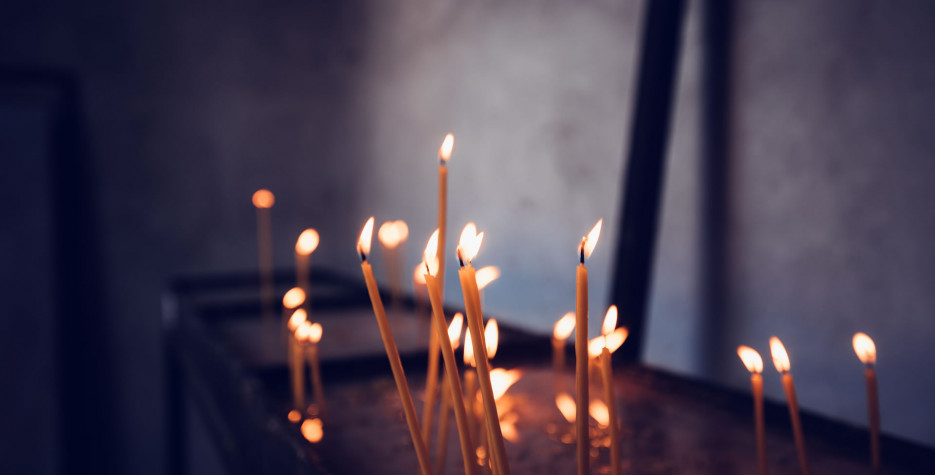When is Candlemas?
Candlemas is a public holiday in Liechtenstein and is always celebrated on February 2nd.
History of Candlemas
After observing the traditional 40-day period of purification following the birth of Jesus on December 25th, Mary presented him to God at the Temple in Jerusalem.
In the New Testament, the Gospel of Luke says that Jesus was met by a devout Jew named Simeon. Simeon held the baby Jesus in his arms, calling him 'a Light to the World'. This recognition of the infant Jesus become the customary day in the year when all the candles in a Church are blessed for the coming year, hence Candlemas.
Candlemas may also be known as the Feast of the Purification of the Blessed Virgin Mary or the Feast of the Presentation of our Lord Jesus. It is one of the oldest Christian festivals, marking the presentation of the baby Jesus dates back to the 4th century and the tradition of blessing candles is about 1000 years old.
To celebrate Candlemas, all the candles in the house should be lit. It was traditional not to put away the nativity manger scenes until Candlemas, as it is seen as the last feast of the Christmas cycle that began with Advent on the fourth Sunday before Christmas Day.
Did you know?
Candlemas used to be a national holiday in Scotland
As early February is the mid-point between the winter solstice and the spring solstice, this time of the year was an important time to mark the coming of Spring and celebrate the increasing light.
The ancient Romans observed a mid-season festival on February 5th, and the pagan Irish celebrated Imbolc around February 1st. In many parts of Europe, an early February might herald the start of spring, when crops could be planted, so any way of predicting the weather at this time of year was popular. Early Christians had a tradition that if it was sunny on Candlemas, winter would last for six weeks more.
In Germany, there was a custom where the remaining amount of cold weather was determined by whether a badger would leave its set on Candlemas. This tradition continues today, but you might know it as Groundhog Day, a US tradition brought from Germany that predicts how much of Winter is left based on a Groundhog seeing its shadow on February 2nd.
In France, Candlemas is known as 'La Chandeleur'. It is traditional on this day is to make crêpes (pancakes) and the day is also called 'Fete de la Lumiere'. One custom on Candlemas is to hold a coin in one hand and flip the pancake with your other hand. If you catch the pancake in the pan, that will bring good luck for the coming year.
On the night of Candlemas in Luxembourg, children sing a customary song wishing health and prosperity to their neighbours and receive sweets in return. They carry special candles called Lichtebengel, symbolizing the coming of spring.
In Mexico, Candlemas is known as the Day of the Light. It is widely celebrated across Mexico with dances, processions and bullfights.


